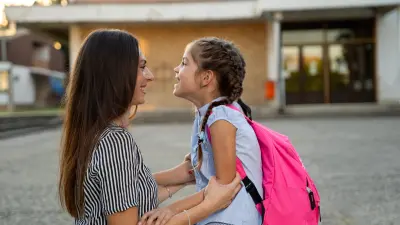Parenting can feel like a nonstop performance review—school apps buzzing, calendar reminders chiming, and Instagram feeds telling us we’re late to the next parenting trend.
To cut through the noise, Harvard psychologist Dr. Ellen Langer—often called the mother of mindfulness—sat down with Rich Roll to share a refreshingly practical take:
Mindfulness isn’t a seated meditation practice; it’s an everyday habit of paying attention.
“Mindfulness is simply the process of actively noticing new things.” — Dr. Ellen Langer, Rich Roll Podcast: “Harvard Mindfulness,” 2024
Below are seven habits drawn from that conversation that will help you swap autopilot for presence—no incense, retreats, or extra screen‑time guilt required.
(All quotes are from Dr. Langer’s appearance on the Rich Roll Podcast, episode “Harvard Mindfulness,” 2024.)
1. Notice Something New About Your Child Each Day
“Long‑term relationships grow stale only when we stop looking.” —Langer
Set a micro‑goal to spot one fresh detail—how your son’s laugh has changed or the new slang your teen just adopted. Share it aloud. This tiny act trains your brain to stay curious, signals to your child that they’re seen, and models mindful observation.
2. Reframe “I Don’t Know” as a Superpower
“Certainty makes you mindless; uncertainty is the rule, not the exception.”
When your child asks a stumper, trade panic for partnership: “I don’t know—let’s find out together.” You’ll validate curiosity, teach research skills, and remind everyone that learning is a lifelong practice.
3. Stop Chasing the “Right” Decision—Make the Decision Right
“Once you act, you can never know how the alternatives would have played out. So invest in making the decision right.”
Whether it’s swim lessons or screen rules, perfectionism sparks anxiety. Instead, commit to the path you choose and tweak as you go. The message to kids: life is improv, not a final exam.
4. Turn Stress Into a Teachable Moment
“Stress needs two beliefs: that something will happen and that it will be awful.”
Help children examine both beliefs: Is it certain? And what if something good comes out of it? Reframing turns looming tests or team try‑outs into opportunities for growth rather than dread.
5. Teach Kids to Ask, “What Else Could This Mean?”
“Events are neutral until we label them.”
When siblings clash or a friend ghosts your tween, brainstorm three alternative explanations together. Flexing this empathy muscle fosters resilience and prevents black‑and‑white thinking.
6. Create Micro‑Mindful Moments in Daily Routines
“Fatigue is often learned—change the context, and energy returns.”
Inject 30‑second noticing pauses: feel the toothbrush bristles, count five sounds on the commute, or take one deep breath before unlocking the front door. These mini resets break autopilot without adding tasks to your checklist.
7. Use the G‑L‑A‑D Rule as a Family Check‑In Tool
“Be Generous, Loving, Authentic, Direct—and watch relationships change.”
Once a week at dinner, invite each family member to share one moment they felt Generous, Loving, Authentic, or Direct. You’ll create a simple ritual that reinforces values and celebrates mindful wins.
Messy But Meaningful
Parenting will always be messy, uncertain, and full of moments that test your patience, but it can also be deeply meaningful when we meet those moments with curiosity instead of control. As Dr. Ellen Langer reminds us, mindfulness isn’t about doing more—it’s about noticing more. When we pause to see our children (and ourselves) with fresh eyes, we create space for growth, connection, and joy.








Leave a Reply